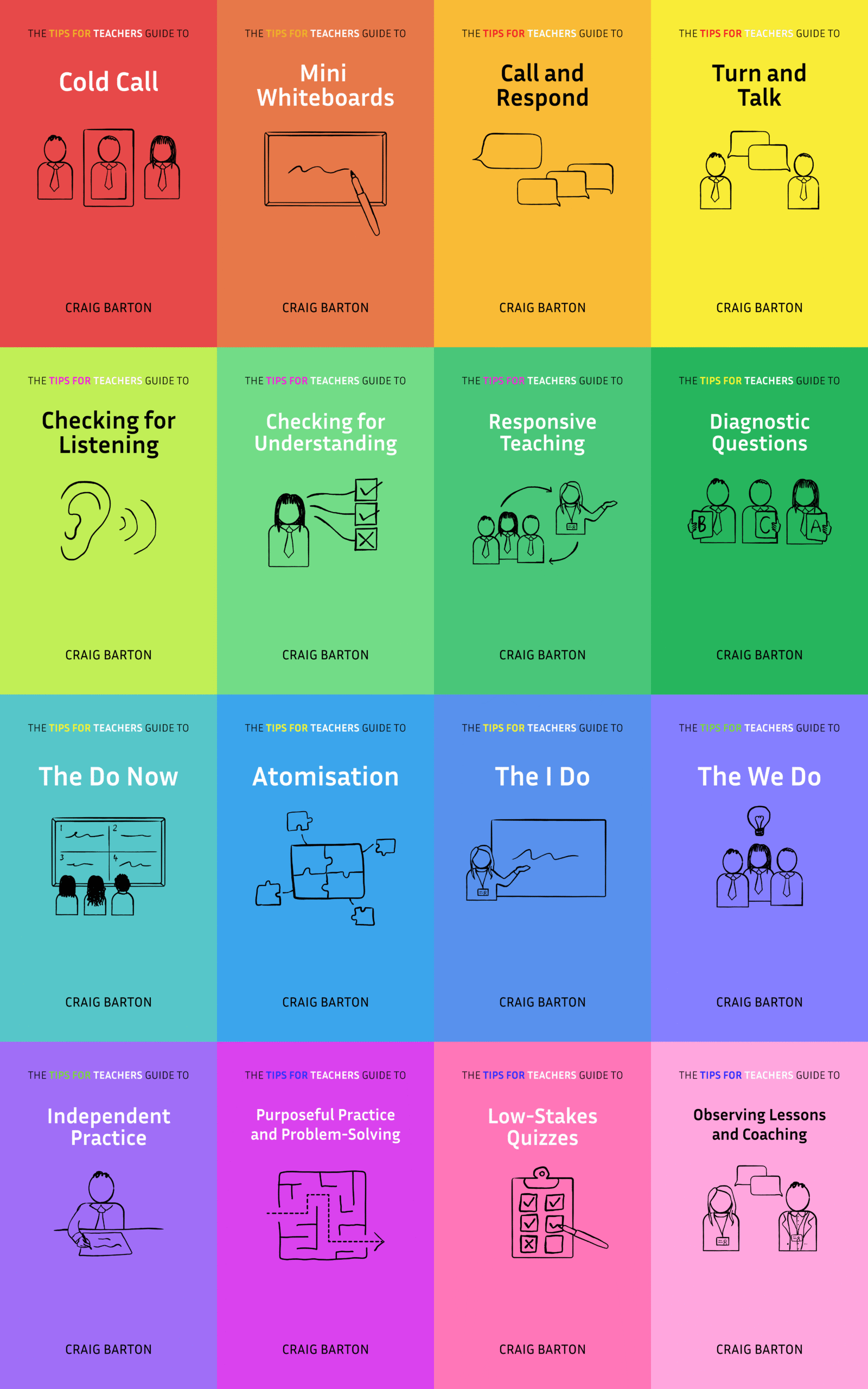Summary
This YouTube video discusses building habits, not just one-off actions, to improve teaching and student learning. The speaker emphasizes identifying key behaviors for lasting change and providing necessary support. Strategies for establishing positive habits in students, such as altering classroom situations and using prompts, are explored. The conversation also extends to teacher professional development (CPD), suggesting methods for creating lasting change in teaching practices through focused goals, practice, and accountability. Ultimately, the focus is on creating sustainable improvements by concentrating on a few impactful habits rather than numerous fleeting changes.
Time-stamps
- [0:25 – 1:54]: The importance of building habits instead of relying on one-off motivational tactics. The speaker emphasizes that focusing on lasting changes and supporting students in developing good habits is more effective than relying on sporadic inspiration. Habits provide a framework for consistent behavior, addressing the underlying issue rather than temporarily motivating students.
- [1:54 – 2:45]: Identifying key habits for lasting improvement. The speaker suggests pinpointing two or three crucial habits that can significantly impact student learning, whether for individual teachers, departments, or entire schools. This approach prioritizes the most impactful changes for lasting improvement.
- [3:19 – 4:47]: Breaking negative habits by changing the situation and promoting positive ones. The speaker discusses ways to break negative habits by altering the environment or routine to make it harder for students to engage in undesirable behavior. This can involve providing clear instructions and expectations beforehand, such as having students write down answers before sharing them aloud.
- [4:48 – 5:30]: Frontloading the means of participation as a proactive strategy. The speaker highlights the importance of “frontloading the means of participation,” which involves explaining expectations and processes before asking a question or giving instructions. This allows students to cognitively prepare and understand the desired actions.
- [5:31 – 7:02]: Applying habit-building principles to teacher professional development. The speaker emphasizes the importance of designing professional development (CPD) that supports teachers in developing and implementing new habits. Strategies include setting specific goals, practicing new techniques, establishing prompts and reminders, creating accountability systems, and incorporating peer observation and feedback.
- [7:03 – 7:47]: The value of practical, applicable CPD that saves teachers time and effort. The speaker advocates for CPD activities that are directly relevant to teachers’ upcoming lessons, enabling them to see the immediate value and save time in planning. This increases the likelihood of teachers implementing and sustaining new practices.
What are the key implications for teachers in the classroom?
- Focus on building habits, not one-off actions. Instead of trying to motivate students to do something once, teachers should focus on helping them develop habits that will support their learning over time. For example, instead of negotiating with students to start writing, teachers should establish the habit that when asked to write, students begin writing immediately, even if they are stuck.
- Identify the two or three key habits that will make the biggest difference for students. This could be done on an individual, departmental, or school-wide level. Once these habits have been identified, teachers can work on developing strategies to help students develop them.
- Consider the context and create situations that support the desired habit. For example, if a teacher wants to encourage students to think independently before answering questions, they could change the situation by displaying the question on the board and giving students time to think and write down their answers before asking for volunteers.
- Provide prompts and triggers to remind students of the desired habit. This could involve using visual cues, timers, or verbal reminders.
- Establish accountability systems to help students track their progress and stay motivated. This could involve asking a colleague to observe a lesson or having students reflect on their progress.
- Use professional development opportunities to develop habits of improvement. Teachers can use professional development time to design and practice new strategies, and to develop accountability systems to support their implementation.
- Make professional development relevant and applicable to teachers’ current practice. This could involve asking teachers to plan a lesson that incorporates the strategies they are learning about, so that they can immediately apply their learning in the classroom.









